10 Best Herbal Lotions For Dermatitis
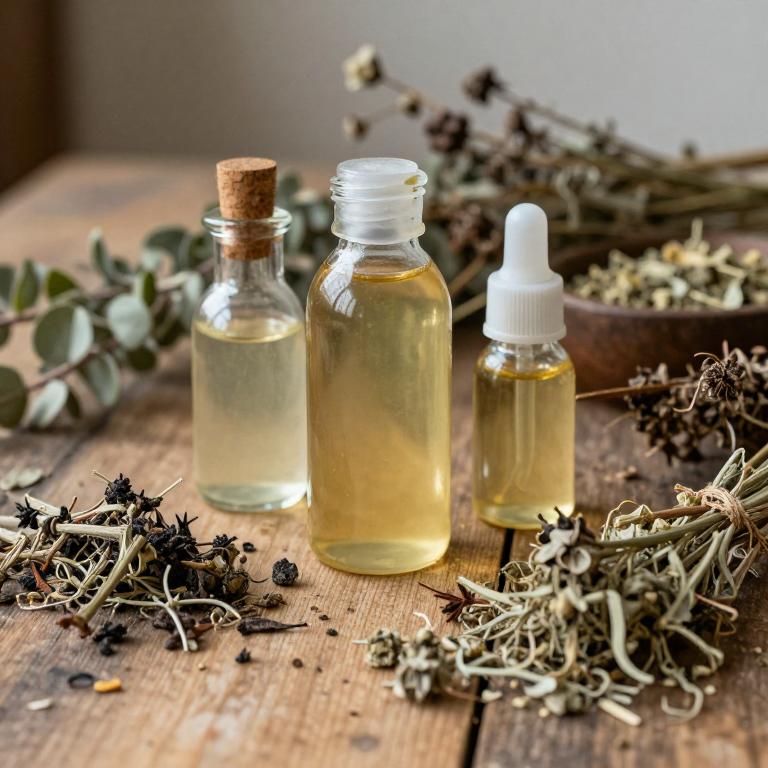
Herbal lotions have become a popular natural remedy for managing dermatitis due to their soothing and anti-inflammatory properties.
These lotions often contain ingredients like chamomile, calendula, and lavender, which are known for their ability to calm irritated skin and reduce redness. Unlike synthetic medications, herbal lotions are generally gentler and less likely to cause adverse reactions, making them suitable for sensitive skin. They can help moisturize and repair the skin barrier, providing relief from dryness and itching associated with dermatitis.
However, it's important to consult a healthcare professional before using herbal lotions, especially if symptoms persist or worsen.
Table of Contents
- 1. Aloe vera (Aloe barbadensis)
- 2. Marigold (Calendula officinalis)
- 3. St. john's wort (Hypericum perforatum)
- 4. Stinging nettle (Urtica dioica)
- 5. Chamomile (Matricaria chamomilla)
- 6. English lavender (Lavandula angustifolia)
- 7. Dog rose (Rosa canina)
- 8. Ginger (Zingiber officinale)
- 9. German chamomile (Chamomilla recutita)
- 10. Echinacea (Echinacea purpurea)
1. Aloe vera (Aloe barbadensis)

Aloe barbadensis, commonly known as aloe vera, is widely used in herbal lotions for its soothing and healing properties, making it a popular choice for individuals suffering from dermatitis.
These lotions often contain a concentrated form of aloe gel, which is rich in vitamins, minerals, and amino acids that help reduce inflammation and promote skin repair. The anti-inflammatory and antimicrobial properties of aloe vera can help alleviate redness, itching, and irritation associated with various types of dermatitis. When applied topically, aloe-based lotions create a protective barrier on the skin, helping to lock in moisture and enhance the skin's natural healing process.
However, it is important to choose a high-quality, pure aloe product to avoid irritants that may worsen dermatitis symptoms.
2. Marigold (Calendula officinalis)
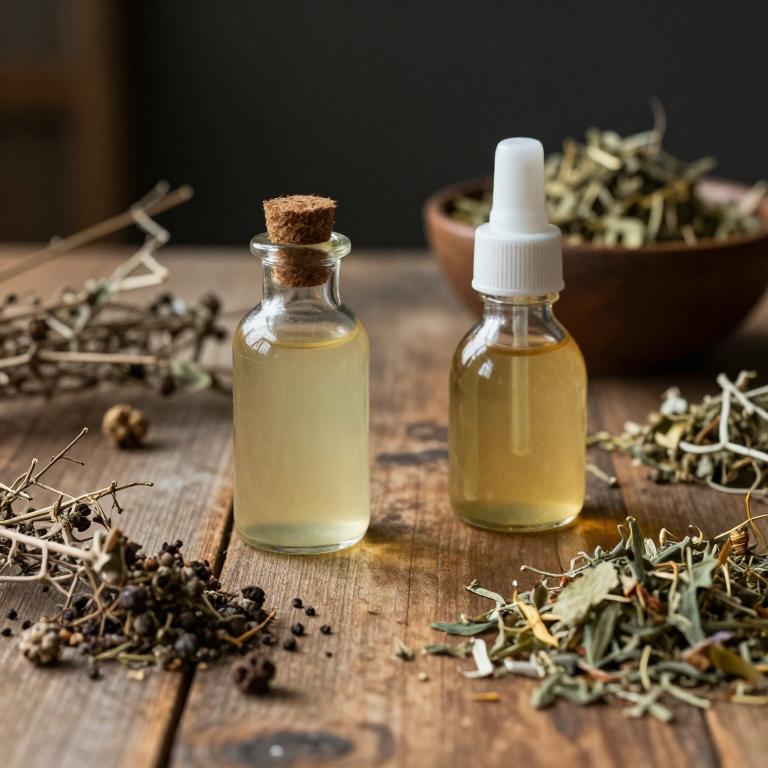
Calendula officinalis herbal lotions are widely used for their soothing and anti-inflammatory properties, making them a popular choice for treating dermatitis.
These lotions contain bioactive compounds such as flavonoids and triterpenes, which help reduce redness, itching, and irritation associated with skin conditions. The gentle nature of calendula makes it suitable for sensitive skin, including those with eczema or contact dermatitis. When applied topically, calendula officinalis can promote skin healing and enhance the skin’s natural barrier function.
As a natural remedy, it offers a safe and effective alternative to conventional treatments for mild to moderate dermatitis.
3. St. john's wort (Hypericum perforatum)
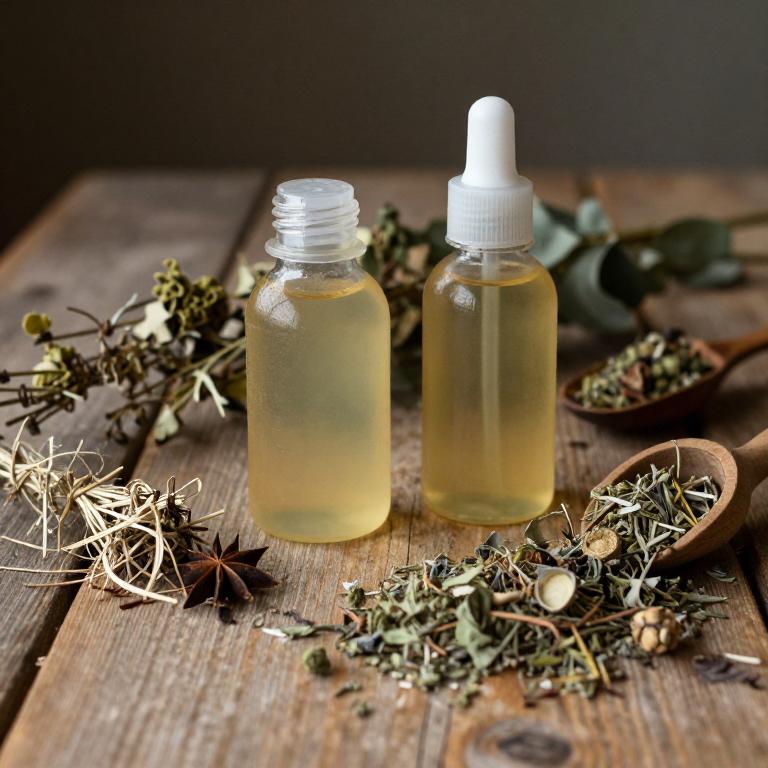
Hypericum perforatum, commonly known as St. John's wort, is traditionally used in herbal lotions for its anti-inflammatory and soothing properties.
These lotions are often applied topically to treat dermatitis by reducing redness, itching, and irritation associated with skin conditions. The active compounds in St. John's wort, such as hypericin and flavonoids, may help to modulate the immune response and promote skin healing. However, it is important to note that some individuals may experience photosensitivity or allergic reactions when using these products.
As with any herbal remedy, it is advisable to consult a healthcare professional before incorporating hypericum perforatum lotions into a skincare routine.
4. Stinging nettle (Urtica dioica)

Urtica dioica, commonly known as stinging nettle, is a herbal plant that has been traditionally used for its anti-inflammatory and soothing properties.
Urtica dioica herbal lotions are often formulated to alleviate symptoms of dermatitis, such as redness, itching, and irritation. These lotions typically contain extracts from the leaves and roots of the plant, which are rich in antioxidants and bioactive compounds. When applied topically, they may help reduce skin inflammation and promote healing by calming the skin's immune response.
However, it is important to perform a patch test before using any herbal lotion to ensure there is no allergic reaction.
5. Chamomile (Matricaria chamomilla)
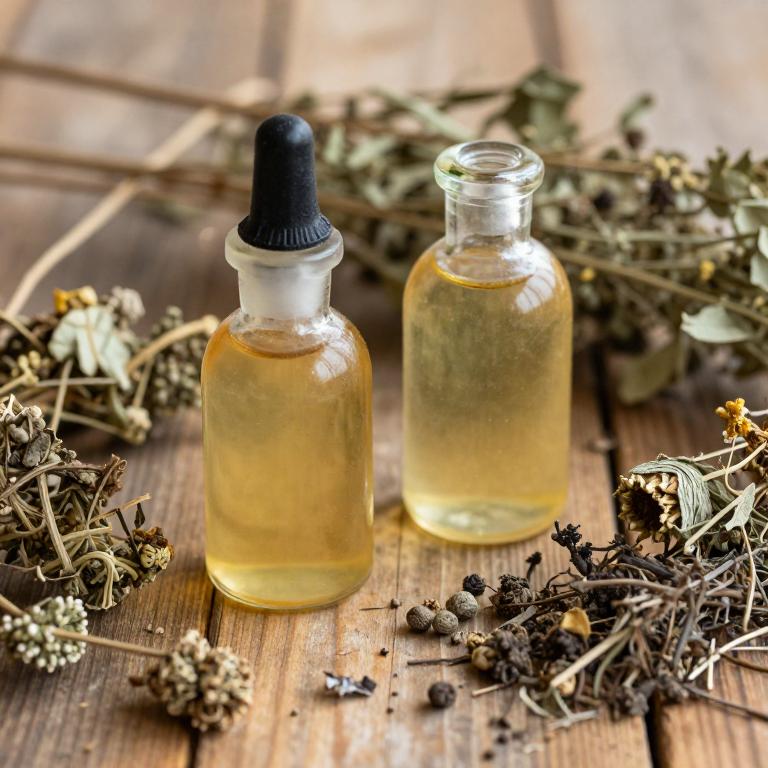
Matricaria chamomilla, commonly known as chamomile, is widely used in herbal lotions for the treatment of dermatitis due to its anti-inflammatory and soothing properties.
These lotions are often formulated with chamomile essential oil or extracts, which help reduce redness, irritation, and itching associated with various types of dermatitis. The active compounds in chamomile, such as bisabolol and flavonoids, contribute to its ability to calm and heal sensitive skin. When applied topically, chamomile-based lotions can provide relief from symptoms and promote skin regeneration.
However, it is important to perform a patch test before use to ensure no allergic reaction occurs, especially in individuals with known sensitivities to plants in the Asteraceae family.
6. English lavender (Lavandula angustifolia)
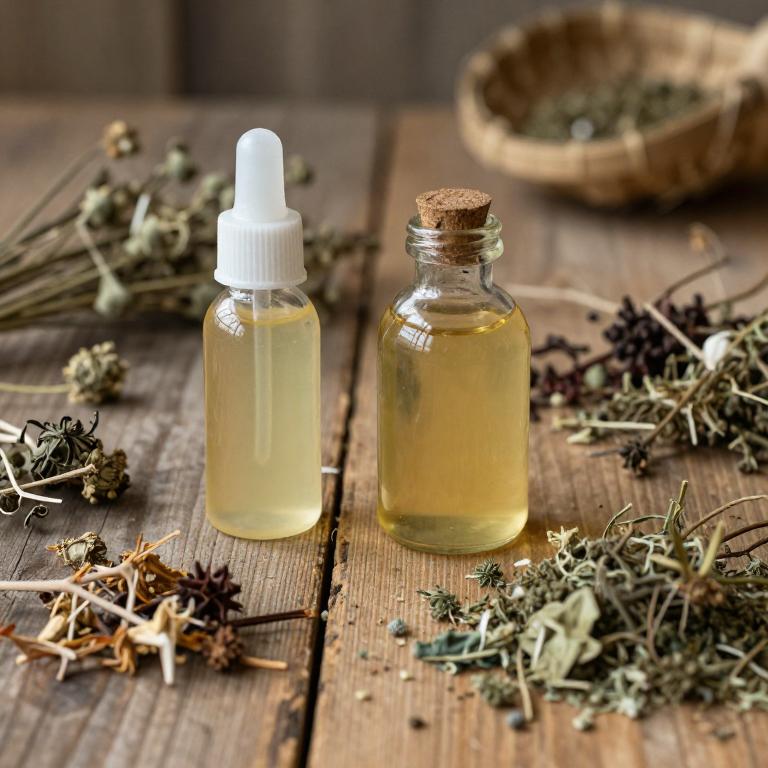
Lavandula angustifolia, commonly known as English lavender, is widely used in herbal lotions for the treatment of dermatitis due to its anti-inflammatory and soothing properties.
These lotions often contain essential oils extracted from the flowers of the plant, which have been shown to reduce redness, itching, and irritation associated with skin conditions like eczema and contact dermatitis. The calming aroma of lavender also helps to ease stress, which can exacerbate dermatitis symptoms. When applied topically, lavender-based lotions can promote skin healing and provide a gentle, natural alternative to conventional treatments.
However, it is important to perform a patch test before use to avoid allergic reactions, especially in individuals with sensitive skin.
7. Dog rose (Rosa canina)
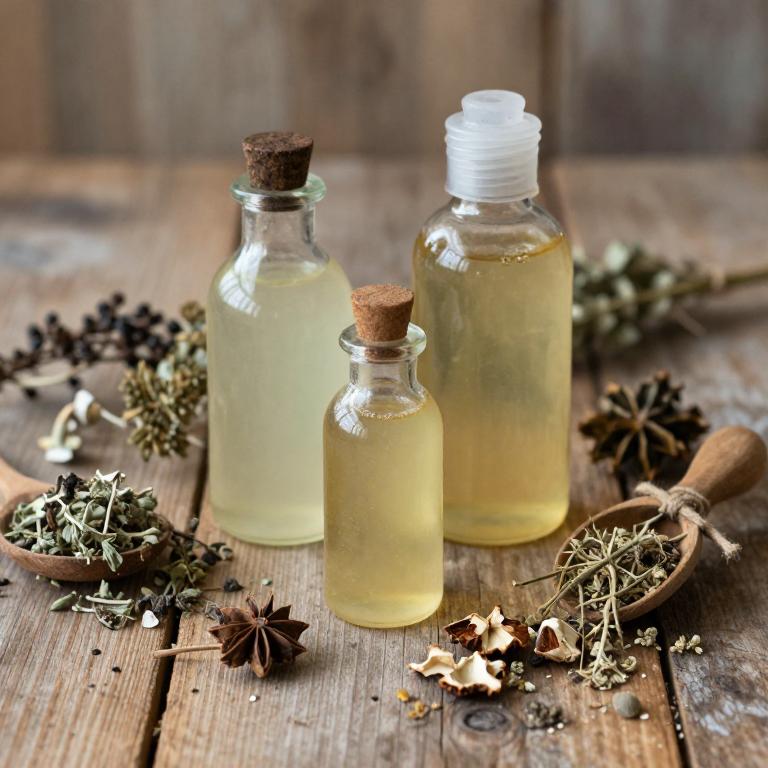
Rosa canina, also known as dog rose, is a traditional herbal remedy that has been used for centuries to support skin health.
Rosa canina herbal lotions are formulated with the dried flowers and fruits of the Rosa canina plant, which are rich in antioxidants, vitamins, and essential fatty acids. These lotions are particularly beneficial for individuals suffering from dermatitis, as they help to soothe inflammation, moisturize the skin, and promote healing. The anti-inflammatory and antimicrobial properties of Rosa canina can help reduce redness, itching, and irritation associated with eczema and other forms of dermatitis.
When used as part of a holistic skincare routine, Rosa canina herbal lotions may offer a natural and effective alternative for managing skin conditions.
8. Ginger (Zingiber officinale)

Zingiber officinale, commonly known as ginger, has been traditionally used for its anti-inflammatory and soothing properties, making it a valuable ingredient in herbal lotions for dermatitis.
These lotions often contain ginger extract, which may help reduce redness, itching, and irritation associated with various types of dermatitis. The bioactive compounds in ginger, such as gingerols and shogaols, are believed to have antioxidant and antimicrobial effects that support skin healing. When applied topically, zingiber officinale herbal lotions can provide a natural, gentle alternative to conventional treatments for sensitive skin conditions.
However, it is important to patch test these products to ensure they do not cause further irritation, especially for those with known sensitivities.
9. German chamomile (Chamomilla recutita)
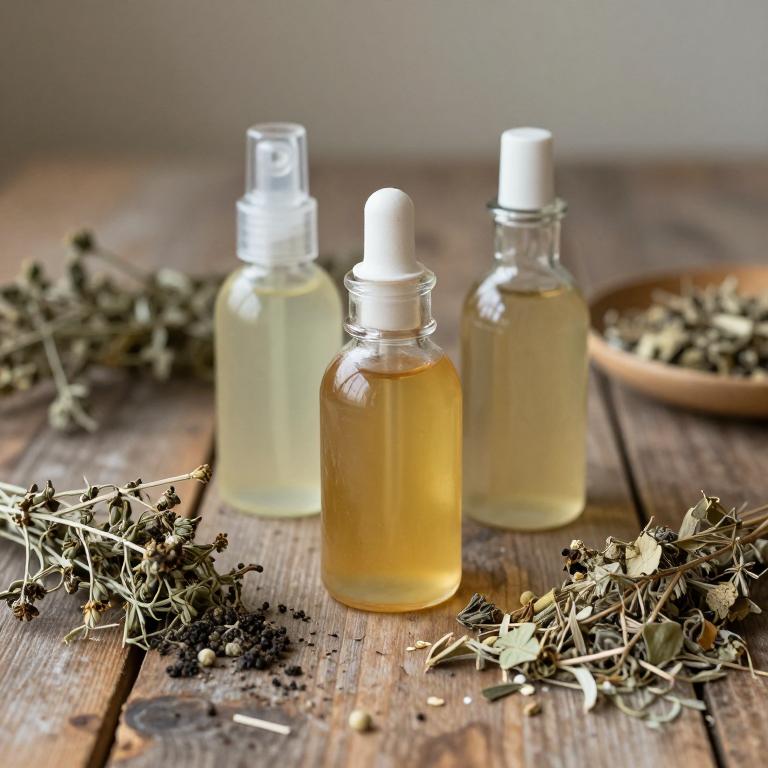
Chamomilla recutita, commonly known as German chamomile, is widely used in herbal lotions for its soothing and anti-inflammatory properties, making it a popular choice for treating dermatitis.
These lotions often contain chamomile extracts, which are rich in flavonoids and terpenoids that help reduce skin irritation and redness. The calming effect of chamomile can provide relief from the itching and inflammation associated with eczema and contact dermatitis. When applied topically, chamomile-based lotions may help to strengthen the skin’s barrier function and promote healing.
However, it is important to perform a patch test before use, as some individuals may be allergic to chamomile or other ingredients in the formulation.
10. Echinacea (Echinacea purpurea)
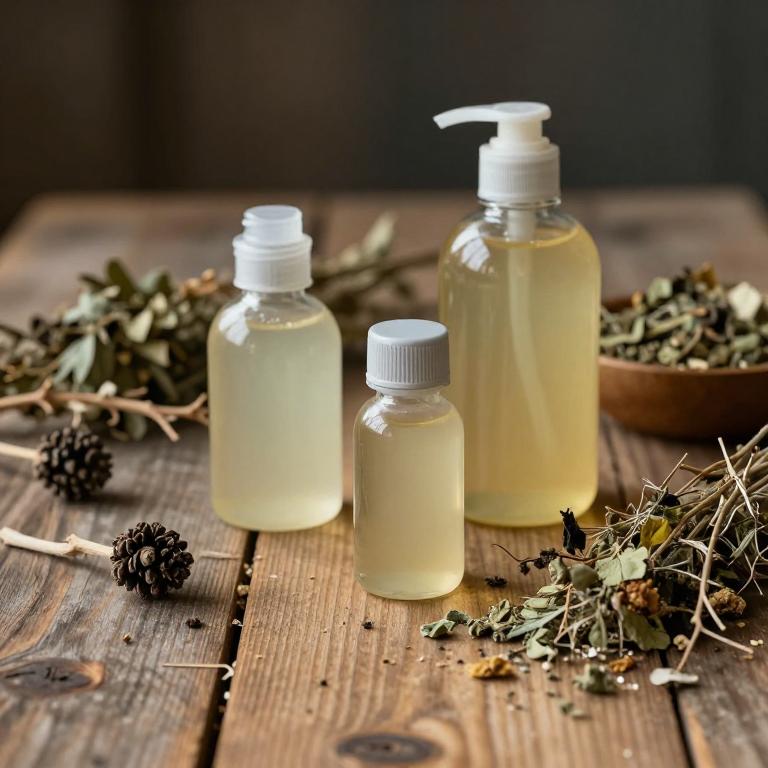
Echinacea purpurea herbal lotions are increasingly used in natural remedies for dermatitis due to their anti-inflammatory and antimicrobial properties.
These lotions are derived from the purple coneflower, which has been traditionally valued for its immune-boosting and skin-soothing effects. The active compounds in echinacea, such as alkamides and flavonoids, may help reduce redness, itching, and irritation associated with eczema and other forms of dermatitis. When applied topically, these lotions can provide a calming effect on sensitive skin while supporting the skin's natural healing process.
However, individuals with allergies to plants in the daisy family should exercise caution and consult a healthcare professional before use.